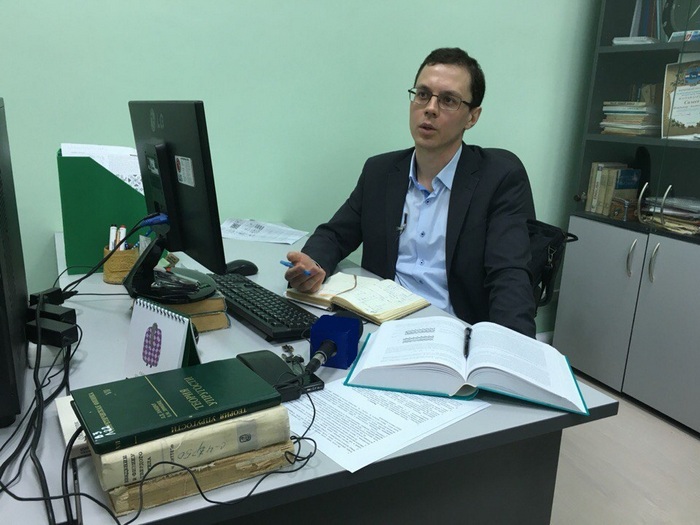Samara University scientists started the work on creation of aluminium batteries. They will be safer, cheaper and more environmentally friendly than current lithium-ion batteries and can be widely used in electric vehicles and energy storage systems. Research works on this subject are carried out in the Inter-University Research Centre on Theoretical Materials Science (IURCTMS) of Samara University.
Development of solid electrolytes based on aluminium is a game changer in the world of science. The first scientific paper on this topic appeared in foreign scientific journals only in 2015. However, Russian scientists believe that the appearance of aluminium batteries has a good reason.

“Aluminium ion may have an oxidation degree of +3, while the lithium - only +1. This means that theoretically a single aluminium atom may bear a charge three times greater than lithium. Accordingly, the current which will be provided by the aluminium batteries under otherwise equal conditions may be three times higher than that of lithium. At the same time, aluminium atoms are much larger than lithium atoms, so their diffusion in the material is difficult. In addition, lithium batteries have a very high energy storage density. It’s not clear yet, whether aluminium batteries can reach or surpass the limit of the energy density of lithium. But it is obvious that aluminium is much cheaper than lithium and it is one of the most common elements on the Earth”, - said Artem Kabanov, IURCTMS researcher, Candidate of Physical and Mathematical Sciences.
Calculation of the properties of advanced materials for new batteries is being made in Samara University with the help of software systems ToposPro and VASP.
ToposPro, developed in IURCTMS contains databases of more than 1 million substances, equipped with an expert system for evaluation properties of substances having different composition and structure. VASP is a world-renowned software package for quantum mechanical simulation of the properties of solids. Combining two powerful methods of studying substances allows the University scientists to get the whole new results. Samara University scientists have got new perspectives on the creation, experimental testing and implementation in production of new batteries on the basis of aluminium and other metals thanks to cooperation with German colleagues from the Institute of Experimental Physics of the Technical University of Freiberg University of Mining and Technology (TUBAF, Freiberg, Germany).
Samara University scientists presented the first work results on creation of solid electrolytes based on aluminium in the form of the Russian-German research reports at the international conference in Lithuania ISSFIT-12 in July (Artem Kabanov “Beyond Lithium: Ab-initio simulations of different cation-conducting materials (Na, Al, K)”, Elizaveta Timofeeva “K + -conductive inorganic compounds as promising materials for the solid-state batteries”, T. Nestler (Germany) “Is there solid electrolytes for Al3 +?”).
Creating a “battery of the future” on the basis of aluminium can greatly accelerate technological development in many spheres of human life. For example, electric vehicles are exotic in modern Russia. But generally in 2015, according to the International Energy Agency of the OECD, 1.26 million electric vehicles have already travelled on the roads of the world. And by 2035, according to Wood Mackenzie analysts, every tenth car sold in the United States will run on electricity. And perhaps each of them will have an aluminium battery by that time.
“We design materials for batteries of different substances. But we can already say that the solid aluminium-based electrolytes may be better than recently projected sodium ones. Aluminium can bear a higher charge, and thus produce a stronger current, which will easily provide electricity to an autonomous unit such as an electric vehicle”, - says Vladislav Blatov, Director of IURCTMS, professor of Samara University.
Creating a cheap, safe and energy-intensive battery will provide an impetus to the development of “green energy” - in fact, its main problem is intermittent passive and active cycles. Sunlight and wind are fickle. It’s necessary to store the energy obtained in an active cycle and transfer it to consumers in a “passive” period. Currently, the US uses cheap, but cumbersome and complicated technology of sodium-sulphur batteries, operating at a temperature of 400°C. The aluminium-based batteries will not be much cheaper, but they will be mobile and operate under normal conditions.

 RU
RU  EN
EN  CN
CN  ES
ES 